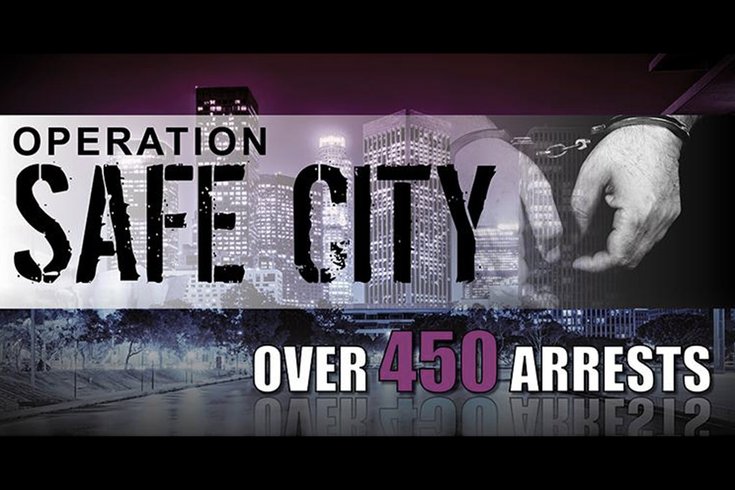FBI in Puerto Rico investigating if corrupt local officials are ‘withholding’ or ‘mishandling’ crucial supplies
FNC: FBI agents in Puerto Rico have been receiving calls from “across the island” with residents complaining local officials are “withholding” or “mishandling” critical FEMA supplies — with one island official even accused of stuffing his own car full of goods meant for the suffering populace.
The accusations come in the aftermath of deadly Hurricane Maria, which devastated the U.S. territory last month.
“The complaints we’re hearing is that mayors of local municipalities, or people associated with their offices, are giving their political supporters special treatment, goods they’re not giving to other people who need them,” FBI Special Agent Carlos Osorio told Fox News.
Osorio, an agent with the FBI in San Juan, said the bureau was investigating the allegations.
“The U.S. attorney has made it clear if anyone is caught mishandling FEMA supplies, they will be prosecuted and could end up facing anywhere from five to 20 years in prison,” Osorio said.
Some of the claims have come by phone and others have poured in over social media, but the allegations stretch across the island.
Osorio told of one allegation where a party official is accused of pulling his own car around the back of a government building and driving off after loading it full of FEMA supplies.
“We’re going out and investigating these claims,” Osorio said. “We don’t know yet if they’re accurate or not…but yes we have received many similar allegations from people in many different parts of the island.”
The allegations of misconduct come amid a pitched back-and-forth between island officials and President Trump over the federal response to Maria.
San Juan Mayor Carmen Yulin Cruz, a frequent Trump foil, reportedly accused Trump on Thursday of “genocide” for not doing more to aid in the relief efforts.
Cruz sent the accusation in a text message to Rep. Luis V. Gutirrez, D-Ill., who is of Puerto Rican heritage, The Washington Times reported.
Trump on Twitter has accused Cruz of poor management.
“…Such poor leadership ability by the Mayor of San Juan, and others in Puerto Rico, who are not able to get their workers to help…” Trump wrote.
The president raised eyebrows Thursday morning by tweeting that federal agencies, military officials and first responders couldn’t stay “in P.R. forever!”
Earlier Thursday, the Daily Caller reported the FBI was aware of misappropriation allegations in six of Puerto Rico’s 78 municipalities.
Rosa Emilia Rodriguez, a U.S. federal prosecutor on the island, told a local Puerto Rican radio station Monday she was investigating officials in the government — including mayors — regarding the misappropriation of supplies. Rodriguez, however, declined to name the government officials being looked at.
“Anybody that engaged in that kind of action whether civilian or representative should be looked at seriously because that’s unforgivable,” Rep. Adriano Espillat, D-N.Y., a member of the Congressional Hispanic Caucus, told The Daily Caller.
***
It is not the first time the FBI has been dispatched to the island. Just last year:
SAN JUAN – The Federal Bureau of Investigations (FBI) has allegedly requested documents from investment firms as part of a probe into the $3.5 billion general-obligation bond issue of 2014 and a $600 million bond issue by the Puerto Rico Electric Power Authority (Prepa) in 2013, according to sources with links to Wall Street.
The sources alleged investigators subpoenaed documents from Barclays PLC, Morgan Stanley and RBC Capital Markets regarding the two bond issues.
Barclays, Morgan Stanley and RBC Capital Markets served as joint lead managers for the $3.5 billion bond offering in March 2014, with Barclays acting as lead book-running manager, according to the Government Development Bank (GDB). The bonds will mature in 2035 and were issued at an 8% coupon and an 8.727% yield.
The power company of Puerto Rico is state owned and has been bankrupt for years and due to money issues, the stability of power is questionable at best. Brown-outs were common and lasted days. Then also in 2016:
The NYT’s reported in part:
The Federal Bureau of Investigation has identified possible suspects in its long-running investigation into the murder of a banker in Puerto Rico, but it is now asking the public for help in solving the 2011 killing.
Five years ago this week, Maurice Spagnoletti, a top executive at Doral Financial, the holding company that owned a Puerto Rico bank, was gunned down on his way home from work in San Juan.
In 2010: In the biggest crackdown on police corruption in the FBI’s 102-year history, authorities charged a total of 133 individuals in Puerto Rico Wednesday as the result of a probe into whether police provided protection for drug dealers.
Wonder what the 17,000 U.S. military personnel on the island providing humanitarian aid including medical, power and food will have to report when their job is complete….




